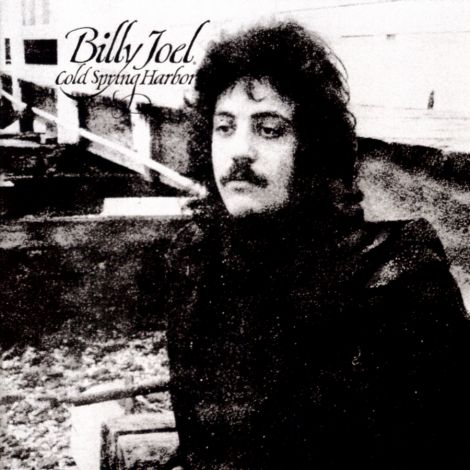
Cold Spring Harbor (1971)

1. She's Got a Way
2. You Can Make Me Free
3. Everybody Loves You Now
4. Why Judy Why
5. Falling of the Rain
6. Turnaround
7. You Look So Good To Me
8. Tomorrow is Today
9. Nocturne
10.Got to Begin Again
Though largely dismissed by its creator, Billy Joel’s debut album remains an important—if flawed—document of a young artist navigating the threshold of a solo career. Released in 1971, Cold Spring Harbor was not the work of a novice; Joel had already recorded with The Hassles and later with the short-lived experimental duo Atilla. What this album reveals is not merely ambition, but also an uneven attempt to reconcile youthful melodrama with musical aspiration.
The record bears all the hallmarks of a first effort. The arrangements are frequently overreaching, and the lyrical content veers into overwrought territory, suggesting the work of a songwriter still testing the limits of his voice—both literally and figuratively. The original pressings were marred by technical faults, most infamously a mastering error that altered the pitch and tempo of the entire record. This error, only partially corrected in later reissues, contributed significantly to the album’s compromised reputation.
Yet despite its shortcomings, the album contains several compositions that would later endure. She’s Got a Way, though not widely recognized at the time, became a career staple following its live reintroduction in 1981’s Songs in the Attic. Similarly, Everybody Loves You Now, with its brisk piano and sharp melodic turns, hinted at Joel’s later command of rhythm and phrasing. These tracks stand apart from the rest, not necessarily because they are more refined, but because they possess an embryonic clarity absent from many of their counterparts.
Elsewhere, Joel’s predilection for classical motifs is evident. The instrumental Nocturne gestures toward his formal training and signals a dimension of his musical identity that would remain latent but present in future work. Tracks like Tomorrow Is Today reveal a more confessional impulse—allegedly inspired by a period of personal crisis—which adds a layer of emotional weight that, while earnest, is not always matched by the music’s compositional strength.
Viewed retrospectively, Cold Spring Harbor occupies a curious position in Joel’s oeuvre. It is both a beginning and an anomaly: a record he himself would later disown, but which nonetheless contains the raw materials of his later success. The missteps are many, yet not without interest. There is sincerity here, and a degree of musical intelligence that, though poorly harnessed at the time, was clearly waiting to mature.
Joel would later state that he only liked half of what he ever recorded. This debut may well be among the material he regarded less fondly. Still, its imperfections serve to illuminate the trajectory that followed. If nothing else, Cold Spring Harbor captures the sound of a young artist on the cusp of discovery—ambitious, unpolished, but unmistakably gifted.
Back To Main Page
Go To Next Review